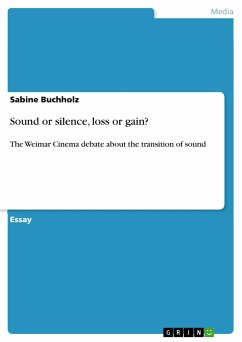Research Paper (undergraduate) from the year 2009 in the subject Communications - Movies and Television, grade: 1, University of Cambridge (Faculty of Modern and Medieval Languages), language: English, abstract: The release of Shepitko's Wings in 1966 could not have come at a more culturally contested time in the Soviet Union. Official discomfort about the treatment of the war and the dissatisfaction with ordinary life depicted in the film could itself be said to be a reflection of the themes explored by Shepitko's drama. The certainty of wartime moral purpose and the high regard for a paternalistic authority in the form of Stalin were hard to separate in the minds of those who lived through the war. Equally, the post-war generation saw an awkward rigidity and naivety in the conservative instincts of their parents' generation. Shepitko's heroine is ill at ease in a society that regards complexity and ambiguity as progressive and liberating. In the sense that she is a woman out of place in the modern Soviet Union, it might be argued that Petrukhina represents an image of the failure of an authority figure whose generational heritage and self-definition had become classed as pejorative and was therefore unable to fit in with the Thaw period.
Bitte wählen Sie Ihr Anliegen aus.
Rechnungen
Retourenschein anfordern
Bestellstatus
Storno








